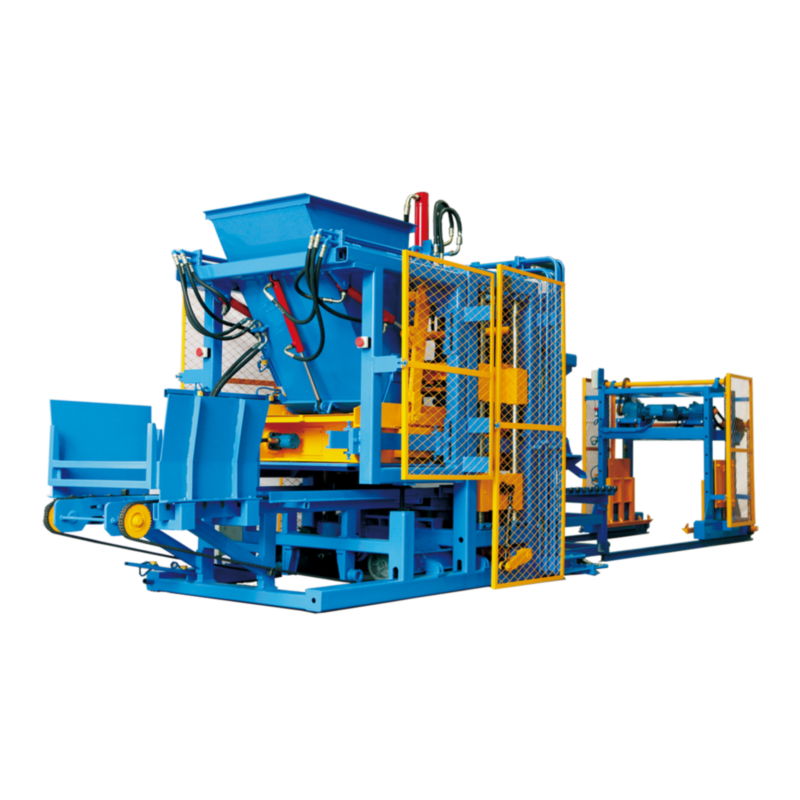A concrete blocks machine contributes significantly to the efficiency and cost-effectiveness of construction projects through a variety of ways:
- Mass Production: Concrete blocks machines can produce a large number of blocks quickly and consistently, reducing the time required for block manufacturing. This increased production rate speeds up construction processes.
- Labor Savings: Automation and mechanization minimize the need for manual labor in block production. This not only reduces labor costs but also frees up workers for other essential construction tasks.
- Reduced Material Waste: Precise control over the block-making process minimizes material waste, ensuring that raw materials are used efficiently. This is particularly important in cost-saving and environmentally friendly construction practices.
- Customization: These machines can be adjusted to create a wide range of block types, sizes, and designs, allowing builders to match blocks to specific project requirements without the need for extensive customization or special orders.
- Consistency: The machines ensure consistent block quality and dimensions, reducing the risk of variations that could lead to structural issues or aesthetic problems.
- Energy Efficiency: Modern concrete blocks machines are designed to be energy-efficient, optimizing power usage during the block production process.
- Less Space Requirement: A compact and well-organized block production setup requires less space on the construction site, which can be valuable in congested or urban environments.
- Inventory Management: On-demand block production means that builders don’t need to maintain large stockpiles of pre-made blocks, reducing storage space and associated costs.
- Project Timeline: Faster block production speeds up project timelines, enabling projects to be completed more quickly. This can be especially important for projects with tight schedules.
- Flexibility: These machines adapt to different construction projects, from small residential builds to large-scale commercial and infrastructure projects, making them suitable for a wide range of applications.
- Quality Control: Quality control mechanisms in modern machines reduce the risk of producing substandard blocks, which could result in costly rework or delays.
- Environmental Impact: By producing blocks on-site, transportation costs and associated environmental impacts are minimized, especially when compared to transporting pre-made blocks from a distant location.
- Material Costs: In some cases, using concrete blocks produced on-site can lead to cost savings when compared to purchasing pre-made blocks.
In summary, concrete blocks machines improve construction project efficiency by reducing labor and material waste, offering customization options, ensuring consistency, and optimizing energy usage. These factors collectively contribute to cost savings, reduced project timelines, and a more sustainable construction process.
What role does automation and control systems play in optimizing the operation and output of a concrete blocks machine?
Automation and control systems play a crucial role in optimizing the operation and output of a concrete blocks machine in several ways:
- Precise Mixing: Automation systems ensure that raw materials are precisely measured and mixed according to predetermined formulas. This precision guarantees the consistent quality of the concrete mixture, resulting in blocks with uniform properties.
- Consistent Compaction: Control systems manage the compaction process, ensuring that the concrete mixture is compacted uniformly. This minimizes the risk of air voids and weak spots in the blocks, enhancing their strength and durability.
- Customization: Control systems allow operators to adjust the machine’s settings to produce blocks of different sizes, shapes, and configurations. This flexibility caters to the specific requirements of each construction project.
- Batching and Material Handling: Automation systems handle the batching of materials and their smooth transition through the machine. This reduces the risk of material jams, block inconsistencies, and downtime.
- Vibration Control: Control systems manage the vibration mechanism of the machine. Properly controlled vibration ensures that the mixture is evenly distributed in the mold, improving block density and preventing defects.
- Hydraulic Pressure: In hydraulic block making machines, automation systems control the hydraulic pressure applied to the mold. This pressure is critical for achieving proper block compaction and density.
- Block Ejection: Automation systems handle the ejection of finished blocks from the mold. This process must be precise to avoid damage to the blocks or the machine.
- Production Rate Optimization: Control systems can adjust the production rate based on demand and machine capacity. This optimizes efficiency and ensures a steady output of blocks.
- Data Monitoring: Automation systems collect data related to machine performance, including block production rates, energy consumption, and error rates. This data is valuable for assessing and improving machine efficiency.
- Remote Monitoring and Control: Many modern concrete blocks machines can be monitored and controlled remotely. This allows operators to oversee machine performance, diagnose issues, and make adjustments without being physically present, reducing downtime.
- Safety Features: Control systems often include safety features such as emergency stop buttons, interlocks, and sensors to protect operators and prevent accidents.
- Quality Control: Control systems may incorporate quality control mechanisms to ensure that blocks meet industry standards and project specifications. This includes conducting compression tests on sample blocks.
- Energy Efficiency: Automation systems can optimize power usage, reducing energy consumption during the block production process. concrete blocks machine This contributes to cost savings and environmental sustainability.
- Error Detection and Correction: Automation systems can detect and respond to errors or malfunctions in real-time. They may automatically stop production, alert operators, or make corrections to prevent defective blocks from being produced.
In summary, automation and control systems are central to the optimization of concrete blocks machine operations. They ensure precise and consistent block production, customization, efficiency, safety, and quality control. These systems are essential for achieving the desired output of high-quality concrete blocks in a cost-effective and efficient manner.
